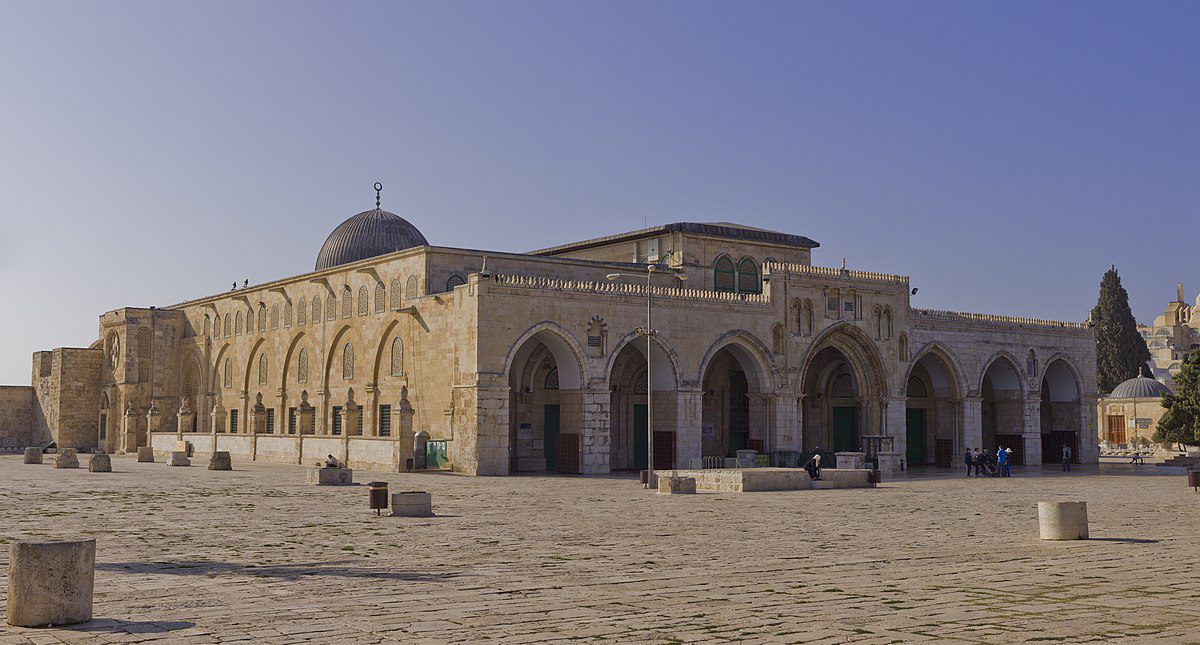As the holy month of Ramadan graces the Islamic calendar, Muslims worldwide embark on a spiritual journey marked by fasting, prayer, and reflection. Fasting during Ramadan, one of the Five Pillars of Islam, serves not just as a physical abstention from food and drink from dawn until sunset but also as a time for purification, self-discipline, and increased devotion. Integral to this holy month are specific duas (supplications) that Muslims recite when making (intending) and breaking their fast, embedding the practice with spiritual depth and meaning.
The Intention to Fast and Dua for Fasting: Suhoor
Before dawn breaks, Muslims partake in Suhoor, the pre-dawn meal, preparing themselves for the day of fasting ahead. While the act of fasting is fundamentally a physical abstention, the spiritual essence of fasting in Ramadan begins with the niyyah (intention). The source of intention is the heart, so inwardly we make a firm conviction to fast and verbally we utter, using words:
نَوَيْتُ صَوْمَ غَدٍ أَنْ أَدَاءَ فَرْضِ شَهْرِ رَمَضَانَ هَذَا الْعَامِ مِنَ الْفَجْرِ إِلَى الْمَغْرِبِ
“Nawaitu sauma ghadin an adai fardhi shahri Ramadan hadhal aam mina al-fajri ila al-maghrib”
Translation: “I intend to keep the fast for tomorrow in the month of Ramadan this year from dawn to sunset.”
This intention is a personal moment between the individual and Allah, signifying readiness and determination to observe the fast.
The Dua for Breaking the Fast: Iftar
The moment of breaking the fast at sunset is eagerly awaited and is a time of great joy and relief. The Prophet Muhammad (peace be upon him) used to break his fast with fresh dates before praying Maghrib, or with water if dates were not available. Accompanying this act is the recitation of a dua, capturing the essence of gratitude, relief, and the completion of a day’s fast. The dua recited is:
اللَّهُمَّ إِنِّي لَكَ صُمْتُ وَبِكَ آمَنْتُ وَعَلَى رِزْقِكَ أَفْطَرْتُ
“Allahumma inni laka sumtu wa bika aamantu wa ‘ala rizq-ika aftartu”
Translation: “O Allah! I fasted for You and I believe in You [and I put my trust in You] and I break my fast with Your sustenance.”
This dua not only marks the end of the day’s fast but also serves as a reminder of Allah’s generosity and the blessings that come from sustenance provided by Him. Another popular dua recited at iftar is:
ذَهَبَ الظَّمَأُ وَابْتَلَّتْ الْعُرُوقُ وَثَبَتَ الْأَجْرُ إِنْ شَاءَ اللَّهُ
“Thahaba al-dhama’u, wabtallatil-‘uruqu, wa thabatal-ajru insha’Allah”
Translation: “The thirst has gone, the veins are moistened, and the reward is confirmed, if Allah wills.”
The Conditions which validate one’s fast
The conditions which make one fast valid are four:
- Islam
- Sanity
- Purity from menstruation or lochia
- That the time one is fasting permits fasting
These four conditions must be present throughout the whole fasting day.
Islam
If a person apostates (may Allah protect us), their fasting is nullified (just as their prayer would be nullified). They are still legally responsible for fasting, though if they did fast while in a state of apostasy, their fast is invalid. If they were to return to the religion, they would have to make up the missed fast days and pay the fidia expiation (discussed later).
Sanity
If one loses their sanity during the fasting day, even for a moment – their fast is broken, regardless of whether the reason for losing one’s sanity was intentional or unintentional, and even if the substance that caused the insanity was taken at night.
However, someone who intentionally took something to lose his sanity must make up the fast. In contrast, someone who did not do something intentionally to become insane does not have to make up the fast (this includes someone who has to take medicine, which may result in temporary loss of one’s sanity). As for someone who is unconscious or suffers from seizures which result in unconsciousness (someone intoxicated takes the same ruling as well): If the unconsciousness was not intentional (they didn’t bring it about on purpose, or they had to take medicine out of necessity which caused this state) and it lasts the whole of the fasting day – then the fast is not valid.
He must make that day up, but he has not sinned. If the unconsciousness does not last all the hours of fasting but only some of it – even if he is conscious for only a second of the fasting day – his fast is valid (as long as he made the intention at night before becoming unconscious). As for someone who purposefully made themselves senseless – it incurs a sin, and their fast is nullified, even if their unconsciousness only lasts a second.
Purity from menstruation or lochia
If a woman menstruates or begins a term of lochia, even for a second – her fast is nullified, and she must make up those days. It is not a condition that a woman bleeds after birth for the fast to be nullified; instead, the birth itself breaks the fast.
It is prohibited for a menstruating woman or a woman in lochia to refrain from those things that break the fast with the intention she is fasting. However, she doesn’t need to do anything (i.e. eat or drink). That the time one is fasting permits fasting: This means the day one is fasting is a day legally permitted for one to fast.
Examples of days which it is prohibited to fast are:
The two Eids: It is not permitted to fast any type of fast on the two days of Eid, not even make-up fasts. If one fasts on these days, it is not valid. What is meant by Eid here is the first day of each celebration, not the second or third days.
Fasting is prohibited on the three days following Eid al Adha (Tashreeq).
The last 15 days of Sha’baan (the month before Ramadan – the prohibition starting on the 16th of Sha’baan as the 15th is considered as being from the first half of the month): It is prohibited to fast after the 15th of Sha’baan to the beginning of Ramadan, unless:
One has a previous habit (wird) of fasting (such as every Monday, every other day, etc, even if they only performed the habit once. For example, someone intends to fast every Monday at the beginning of the year. They fast on Monday but then do not fast again after that. Months later, on the 17th of Sha’baan for example, he decides to restart his ‘wird’ of fasting, and therefore is permitted to fast on a Monday even though it is after the 15th Sha’baan).
One made a vow to fast, and the fast incidentally fell on these days (as opposed to purposefully choosing those days – in which the fast is invalid and incurs a sin).
One has make-up fasts to perform.
One has expiation (kaffarah) to offer.
One began fasting before the 16th (even if they only started on the 15th of Sha’baan) – then it is permitted to continue after the 16th.
The day of uncertainty: The day of uncertainty refers to the day on which it is uncertain, whether it is the 30th of Sha’baan or the 1st of Ramadan. Uncertainty occurs when someone who does not fulfil the criteria of a witness mentions having seen the new moon (causing doubt). One can not fast on this day as a day of Ramadan, but one may do so as a make-up or a vow. Voluntary fasts can only be done if the above reasons exist (see fasting ‘the last 15 days of Sha’baan’ above).
The integrals of Fasting
The integrals of fasting are two:
- The intention
- Refraining from those things that nullify the fast
- The intention for an obligatory fast
The intention is obligatory to say in the heart and recommended to speak with the tongue.
The intention for a fast in Ramadan must:
- Be made at night
- Consist of the type of fast intended (Ramadan)
E.g. “I intend to fast tomorrow for Ramadan.”
The most complete formula for the intention is:
“I intend to fast tomorrow as a current performance of the obligation of Ramadan of this year for Allah most High”.
This optimal formula is valid by consensus and in all schools.
- Be made at night: This means the intention for an obligatory fast must be made at night, anytime between Maghrib and Fajr. It is valid to make the intention just after Maghrib has come in and before one has broken the current day fast (for example, at the adhan of Maghrib and before eating your first date).
This must be done each night for each obligatory fasting day, as each day is considered a separate act of worship.
Note: The above condition of intending the fast does not apply to the intention for supererogatory fasts, which can be made anytime after Maghrib and before Dhur (on the condition the person has not already done anything that would normally break the fast, such as eating, or having sexual intercourse).
It is not obligatory to say in the intention that it is an ‘obligatory/fard’ fast (as there are no voluntary fasts in Ramadan).
Note: As for making up a missed day of Ramadan, it is not obligatory to say ‘of Ramadan’ in the intention, as it automatically defaults to the make-up fast (unless one intends something else).
It is recommended on the night of the first day of Ramadan to make the intention for the next day (as a Shafi’i), but also to make the intention to follow the Maliki school and intend to fast the ‘whole of Ramadan,’ just in case one forgets to make the intention in any of the coming days of Ramadan. Whilst this does not change the necessity of making up the missed day in our school (because of having forgotten the intention), inwardly, the fast is validated through Imam Malik’s opinion.
It is recommended for someone who forgets to make the intention at night (which means his fasting is not counted in our school) to nevertheless make the intention before Dhur with the intention of following the Hanafi school, for the same reasons explained above (and as long as he hasn’t done anything that breaks the fast).
The Spiritual Significance
The duas for making and breaking the fast encapsulate the holistic approach of Islam towards the well-being of the individual. It’s not just the physical act of fasting that holds importance but also the spiritual connection and reflection that comes with it. These supplications serve as reminders of the purpose of fasting in Ramadan: to foster a sense of piety, gratitude, and closeness to Allah. They remind Muslims that their fast is for Allah alone and that their sustenance and relief come solely from Him.
As Ramadan progresses, these duas become a daily affirmation of faith, patience, and gratitude, enriching the fasting experience. They transform the act of fasting from merely abstaining from food and drink to a profound spiritual exercise that nurtures the soul, cleanses the heart, and brings the believer closer to their Creator.
In essence, the duas for making and breaking the fast are not just routine supplications but are profound expressions of faith and devotion. They embody the spirit of Ramadan, reminding Muslims of the deeper purposes of fasting: self-discipline, compassion, and the pursuit of spiritual growth. Through these duas, Muslims worldwide connect in a shared experience of faith, humility, and the continual quest for divine grace.
Note: Fiqh integrals and further reading into Fasting like that which nullify the fast can are based on the Shafi’i Madhab and there might be slight difference of nuances between the four great school of which none of them is wrong. Please consult your local scholar if require further knowledge on fasting in the month of Ramadan. And Allah knows best.






